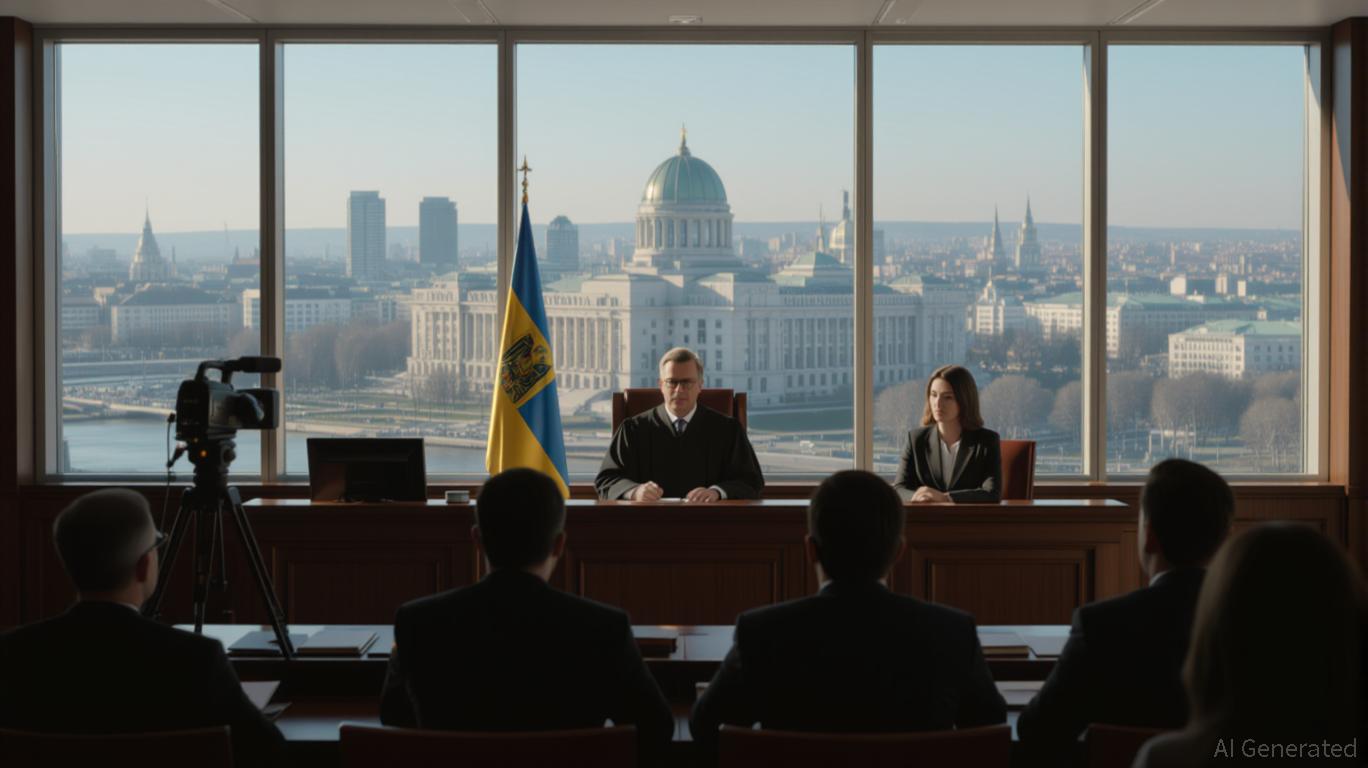
Moldova’s recent high-profile extradition cases, particularly the arrest of former oligarch Vladimir Plahotniuc in July 2025, have thrust the country into a geopolitical spotlight. These events are not merely legal milestones but critical junctures for foreign investors navigating the volatile landscape of post-Soviet states. The interplay between judicial reform, oligarchic entanglements, and Russian influence in Moldova offers a cautionary tale—and a potential opportunity—for capital allocators.
The Oligarchic Undercurrents
Plahotniuc, once Moldova’s most powerful figure, has been at the center of a $1 billion banking fraud case since 2014. His arrest in Athens, facilitated by Interpol, followed years of evasion and clandestine meetings with Kremlin-linked officials. The timing—just 67 days before Moldova’s 2025 parliamentary elections—raises questions about whether the extradition is a genuine anti-corruption victory or a strategic move to weaken pro-Russian political blocs. Plahotniuc’s legal team claims he is willing to cooperate, but skepticism abounds, given Russia’s history of shielding allies through legal subterfuge (e.g., the case of fugitive oligarch Ilan Shor, now a Russian citizen).
The broader implications are stark. Moldova’s banking system, once a key node in the $21 billion “Russian Laundromat” scheme, has long been exploited by oligarchs to funnel illicit funds. These networks, intertwined with Russian state actors, have eroded public trust and destabilized institutions. For investors, this means assessing not just political risks but the structural vulnerabilities of a state where oligarchs often operate with impunity.
Geopolitical Leverage and Economic Vulnerability
Moldova’s pro-EU government, led by President Maia Sandu, has framed these extraditions as a commitment to transparency. However, the country’s economic dependence on energy imports (over 80% from Western Europe) and its precarious GDP growth (0.1% in 2024) create fertile ground for Russian interference. Pro-Russian factions, now unified in a single electoral bloc, have leveraged disinformation and diaspora voters to counter pro-European integration. The Kremlin’s alleged use of the Mir payment system to distribute funds to Moldovan voters abroad underscores how financial tools are weaponized in political battles.
For foreign investors, this volatility translates into two key risks: judicial uncertainty and geopolitical brinkmanship. If Moldova’s judiciary remains susceptible to oligarchic manipulation, the rule of law—a cornerstone for investment—will remain in question. Meanwhile, Russia’s ability to disrupt energy supplies or stoke political unrest could destabilize the business environment, particularly in sectors like agriculture, banking, and manufacturing.
Investment Implications: Caution and Catalysts
While the risks are pronounced, Moldova’s extradition cases also represent a potential catalyst for reform. If the government succeeds in prosecuting Plahotniuc and dismantling oligarchic networks, it could attract foreign capital by signaling a commitment to transparency. The European Union’s recent sanctions against Russian-aligned actors, coupled with U.S. Global Magnitsky Act designations, demonstrate international alignment with Moldova’s anti-corruption agenda.
However, investors must remain wary. The EU’s Eastern Partnership program, which offers trade incentives to pro-European states, is contingent on political stability. A pro-Russian victory in the 2025 elections could trigger a realignment with Moscow, deterring Western investment and inviting Russian-backed capital with less transparency.
Strategic Recommendations for InvestorsDiversify Exposure: Given Moldova’s political fragility, investors should avoid over-concentration in sectors heavily tied to its judiciary or energy sectors. Instead, consider regional diversification across Eastern Europe, where Moldova’s reforms could serve as a bellwether. Hedge Against Geopolitical Risks: Use derivatives or insurance products to mitigate exposure to potential energy supply shocks or policy reversals. Monitor Judicial Reforms: Track the outcomes of Plahotniuc’s trial and similar cases. A successful prosecution would likely boost investor confidence, while delays or perceived bias could signal deeper institutional weaknesses. Engage with Pro-EU Institutions: Prioritize partnerships with companies and projects aligned with EU standards, which are more likely to withstand Russian pressure. Conclusion
Moldova’s extradition cases are a microcosm of the broader struggle between oligarchic corruption and democratic governance in post-Soviet states. For investors, the stakes are high: a reformed Moldova could become a gateway for Western capital, but a regression toward Russian influence would deepen its economic isolation. The coming months will test the resilience of Moldova’s institutions—and the patience of global investors. In this high-stakes game, the rule of law may be the only sure asset.
